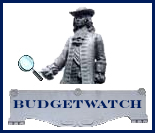- Home
- About
- News
- Tax Reform
- Ethics Reform
- Budget Reform
- Reformer’s Roundtable
- Contact Us







A Little Homework Is In Order For The School District
 It seems that the Philadelphia School District is having some trouble with basic arithmetic lately. Near the end of the last school year, the District CEO appeared before City Council and announced a balanced budget for the Philadelphia School District. Today, after disclosing a budget shortfall that resulted from several inaccurate assumptions about the costs of utilities, retirement-related payments, and charter school enrollment, the District is grappling with a $73 million hole, 3.7 percent of it $2 billion budget. That is not a passing grade. Perhaps District officials could use a little more homework to improve their budgeting procedures so they can get better grades in the future.
It seems that the Philadelphia School District is having some trouble with basic arithmetic lately. Near the end of the last school year, the District CEO appeared before City Council and announced a balanced budget for the Philadelphia School District. Today, after disclosing a budget shortfall that resulted from several inaccurate assumptions about the costs of utilities, retirement-related payments, and charter school enrollment, the District is grappling with a $73 million hole, 3.7 percent of it $2 billion budget. That is not a passing grade. Perhaps District officials could use a little more homework to improve their budgeting procedures so they can get better grades in the future.
This is not the first time that the School District has had difficulty balancing its books. In 2002 the District’s $200 million deficit was a major reason that the State took control of Philadelphia’s schools and established the School Reform Commission to oversee operations. As part of the takeover, the State expanded funding for certain District programs and increased its annual payments to the District by $25 million. The District then borrowed $300 million to pay off that deficit and cover the gap between what was spent and what was raised in the following years. To further augment the District’s resources, the City began allocating a larger percentage of Real Estate Tax Revenues to the schools, in addition to increasing annual payments by $20 million (increasing annual City funding by $45 million).
However, the proceeds of the $300 million borrowing are now nearly expended and the District is clearly once again struggling to make ends meet without sacrificing recent and planned educational and capital improvements. Charting a course for an adequately funded school system and ensuring that this is the last nasty budgetary surprise for the District will require open, inclusive discussion among Philadelphians and their leaders about what their priorities are and how the School District fits into that picture.
The current problems with the School District’s budget have little to do with the operations of City government, as the City and School District have separate and distinct budgets. City tax revenues and annual payments were all forwarded to the District as legally required. Wage and Business Privilege Tax rate reductions, growing City government debt, and expanding operating expenditures did not eat away at the funds available to educate the children of Philadelphia. (In fact, they didn’t even eat away at funds available for City expenditures as the City brought in more revenue than budgeted last year, ending the year with a larger-than-anticipated surplus.) Rather than a shortfall in revenues, which was the condition that precipitated the City of Philadelphia’s financial crisis in the early 1990s, the School District’s problems stem from expenditures being higher than originally planned.
This is not to suggest that the Mayor and City Council are not accountable for the School District’s financial condition. Although management of the School District is currently in the hands of the School Reform Commission, jointly appointed by the Governor and the Mayor, major decisions about local funding of the schools are made by local elected officials.
As part of the City’s annual budget process, City Council authorizes the Real Estate Tax rate that will determine the share of revenue from this source that will flow to the schools, and approves the City’s annual payment. It is within the power of City Council and the Mayor to provide additional resources to the School District through that same budget process.
Simply put, budgets are about priorities. If Philadelphians demand better outcomes from the School District and believe that additional funds are necessary to create the results they want, more money can be forwarded from the City to the School District, with the understanding that if the schools have a bigger piece of the City’s budget pie other City expenditures may have to be reduced.
But, more funding for the District alone will never solve the financial problems without a commitment to sound budgetary practices. The District has already borrowed money to get out of debt, and it cannot balance its books now that those funds have been used up. A more transparent, accessible budget process would ensure increased scrutiny and accountability. Pressure from City officials, the School Reform Commission, parents and others to present budget information accurately and clearly would increase the likelihood that financial difficulties, such as potential deficits, are identified and addressed without draconian budget cuts. Creating financial plans for at least five years (like the City does), offering budgets and narratives in easy-to-understand language, and establishing an independent office to monitor the Philadelphia School District’s budget would help protect our children education from the financial fallout associated with looming deficits. The leaders of the City and School District must do their homework on how other jurisdictions budget in a more open and understandable manner — and commit to getting their math right so our children have a chance to learn theirs.
